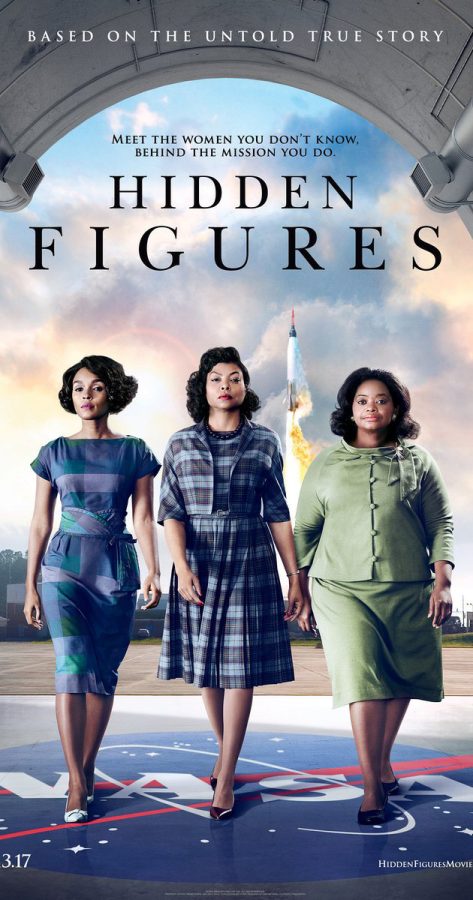Little-known story behind ‘Hidden Figures’ impacts audiences
January 25, 2017
When history is made, credit tends to go to the responsible figures. That’s not the case for the true story behind “Hidden Figures,” the new film that just scored three Oscar nominations and a hit box office run.
The film tells the little-known story of three African American women at NASA who played a significant role in launching John Glenn into space. Katherine Johnson, Dorothy Vaughan and Mary Jackson utilized their exemplary math and science skills to help in the Space Race, but never really got the attention they deserved because of racism and sexism.
Its inspiring message has resonated with female students across Kent State.
After seeing the movie for the first time, junior theatre studies major Cherrell Miller “acknowledged the hustle” from all three women.
Before the movie, Miller did not know anything about the actual story. After seeing the movie, she felt that everything about “Hidden Figures” was huge, and that it needed to be seen by all genders.
Miller also mentioned that any woman chasing her dreams should go see the movie.
The women of “Hidden Figures” “paved the way for young women to succeed,” said Tonean Jhainor, a junior psychology major.
Jhainor was amazed by the movie and did not know the impact or the story behind it. She thought the movie would be another “typical black movie.”
“I cried. The movie was so amazing and powerful,” Jhainor said. “You can fight the system in a way that is not violent.”
Jhainor recommended the movie to everyone, but teachers specifically since she had never learned about the story in school.
“Females in general fight for equal rights, which is a powerful message telling minority women that they can do anything they put their minds to,” Jhainor said.
Trista Mullins, a part-time teaching instructor in the Math and Science building and graduate student, has not seen the film yet but plans to soon. Mullins said she still knew the story behind the film.
“With a lot of math, there are women and minorities that are not recognized for their work,” she said.
Quaylyn Hairston is an entertainment reporter for the Kent Stater, contact her a [email protected].












